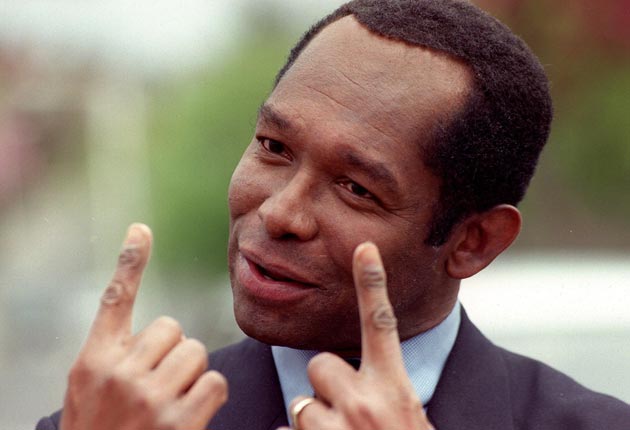Tory peer is sixth politician to face criminal charges over expenses

Lord Taylor of Warwick, a prominent Tory peer, is to be prosecuted over his expenses, the Crown Prosecution Service announced yesterday.
Lord Taylor, 57, was a rising star of the Conservative Party in the early 1990s, when he was a government special adviser, a parliamentary candidate, and the first black Tory peer. A party spokesman said yesterday that he had resigned the Tory whip.
Lord Taylor will appear in front of magistrates on Friday 13 August, accused of false accounting. He is alleged to have claimed over £11,000 in expenses by pretending that his home was outside London when he was actually living in the capital.
He is the sixth politician to face criminal charges over police investigations into MPs' and peers' expenses. Three former Labour MPs – Elliott Morley, David Chaytor and Jim Devine – who stood down at the last election, a sitting Labour MP Eric Illsley, and a Tory peer, Lord Hanningfield, have also been charged.
"Having thoroughly reviewed the eighth file of evidence we have received from the Metropolitan Police in relation to parliamentary expenses, we concluded that there is sufficient evidence and it is in the public interest to bring criminal charges against Lord Taylor," said the director of public prosecutions, Keir Starmer, yesterday.
"Lord Taylor faces six charges under Section 17 of the Theft Act 1968 for false accounting. The first charge alleges that, on or about 31 March 2006, Lord Taylor dishonestly submitted claims for overnight subsistence and car mileage stating that his main place of residence was outside London when he did not reside at the address he had given but resided in London.
"The subsequent charges allege that similar claims were made on 3 July 2006, 31 October 2006, 5 April 2007, 2 July 2007 and 31 October 2007. In total the charges allege a sum in excess of £11,000 was dishonestly claimed."
John Taylor, as he then was, had a remarkable career. He worked as a barrister, a television and radio producer and ran a PR company, Warwick Communications. In 1990, he was appointed special adviser to the Home Secretary.
At that time, there were only four black or Asian MPs, all Labour – a situation the then party chairman, Chris Patten, was anxious to address. When the Conservative MP for Cheltenham, Charles Irvine, announced that he was retiring, Patten used his influence to make sure that John Taylor was adopted as the new Conservative candidate.
Since he was inheriting a majority of nearly 5,000, it looked as if he was safely in position to become the first black Conservative MP, but his adoption triggered a reaction inside the Cheltenham Conservative Association.
The principle objectors denied that their objections had anything to do with race. They said that they were simply protesting at interference in their selection process. But suspicions that the row had racial undertones were stoked when one association member publicly described Mr Taylor as a "bloody nigger" – for which he was quickly expelled from the party. The spectacle of a divided party cost the Conservatives the seat, which was taken by the Liberal Democrats. Mr Taylor was awarded a peerage in 1996.
In his most recent speech in the Lords, two weeks ago, Lord Taylor described himself as having been "born and raised in a place that many people call paradise-Birmingham, just off the M6 motorway, by the gasworks".
His Jamaican father, Derief Taylor, was a professional cricketer, who played for Warwickshire and the West Indies. His mother, also from Jamaica, was a nurse. He studied English literature and law at Keele University, and was called to the bar in 1978, joining the same barristers' chambers as current Justice Secretary Kenneth Clarke.
Elected a Conservative councillor in Solihull, he explained his choice of party by complaining that Labour was too patronising towards blacks.
